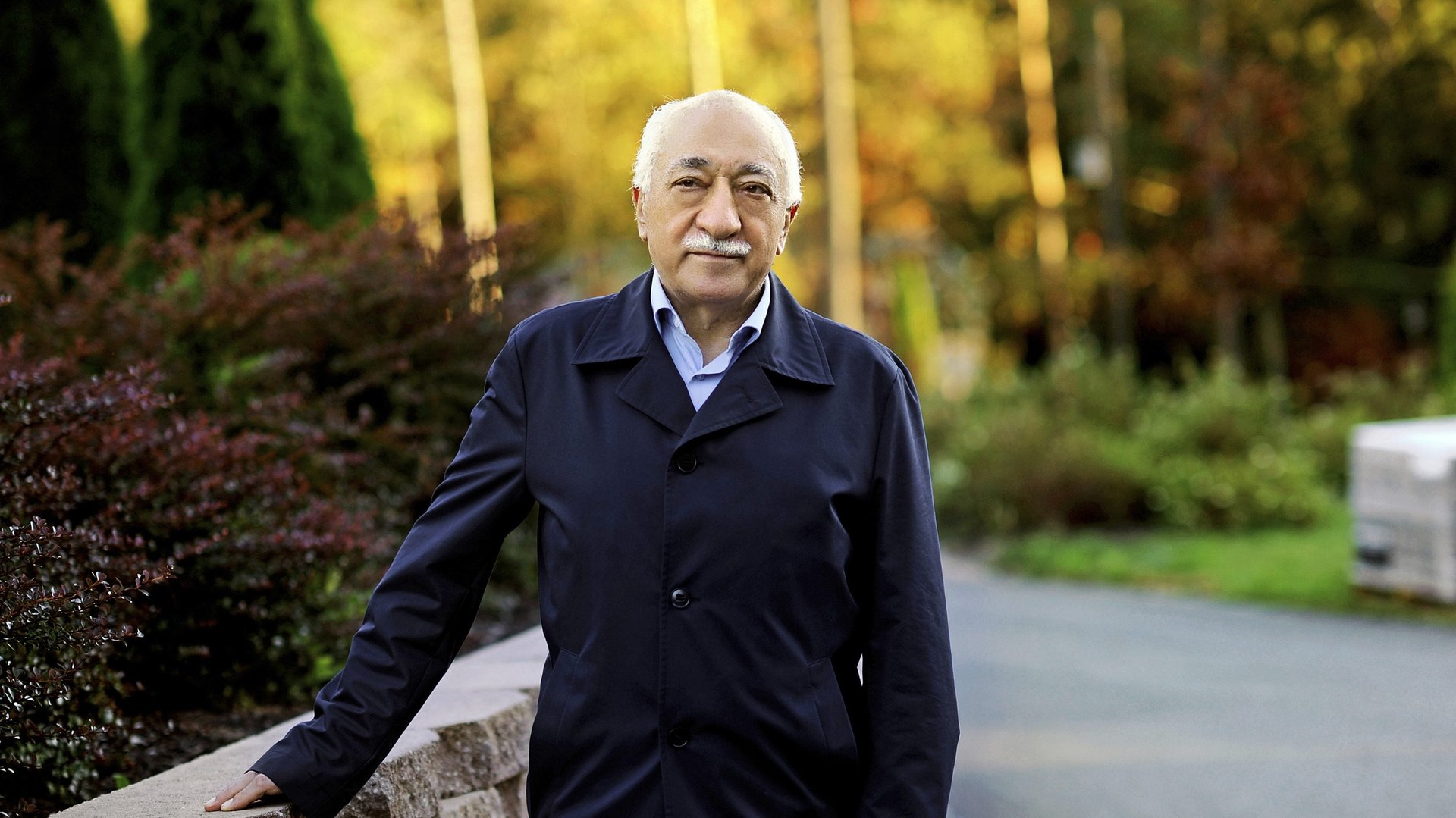A reclusive religious scholar in Pennsylvania may be behind the attempted coup in Turkey
This post has been updated.


This post has been updated.
As tanks take up positions in the streets and jets fly overhead in a dramatic coup attempt in Turkey, suspicion has fallen on Fethullah Gulen, a US-based Turkish religious scholar and political enemy of Recep Tayyip Erdogan, the strongman Turkish president.
Until now, Erdogan had appeared to have crushed the 75-year-old Gulen, who has deep roots in the Turkish political, military, judicial, and media establishments, as well as in Muslim countries around the world. If, as Erdogan himself has alleged, Gulen or his followers are involved in the putsch, then it demonstrates that he remains a force to contend with, though he has lived for years in seclusion in Saylorsburg, Pennsylvania.
But the Alliance for Shared Values, the movement affiliated with Gulen, denied any involvement in the coup, saying: ”we condemn any military intervention in (the) domestic politics of Turkey.”
In a July 16 statement to the New York Times, Gulen condemned the attempted overthrow:
I condemn, in the strongest terms, the attempted military coup in Turkey. Government should be won through a process of free and fair elections, not force.”
I pray to God for Turkey, for Turkish citizens and for all those currently in Turkey that this situation is resolved peacefully and quickly,” he added. “As someone who suffered under multiple military coups during the past five decades, it is especially insulting to be accused of having any link to such an attempt. I categorically deny such accusations.
Erdogan, who returned to Istanbul late Friday evening—a sign that the plot against him was foundering—had blamed Gulen’s followers for the coup and said, “they will pay heavy price for treason.”
In recent weeks, Erdogan has visibly sought to shore up his regional political position by ending the hostility in his relations with Israel and Russia. But until today, there was no indication that he might be in trouble domestically. If it is successful, it will be one of the most surprising coups in modern memory.
Until a few years ago, the shadowy Gulen was an Erdogan ally, and backed his rise, first as prime minister and then president. But in late 2013, Gulen challenged Erdogan’s tightening grip on power. Law-enforcement and judicial officials thought to be loyal to Gulen brought corruption charges against people close to Erdogan, in a campaign that appeared even to be going after Erdogan’s two sons. It was not clear who would win what appeared to be a clear struggle for control of the country. In early 2014, however, Erdogan struck back, purging hundreds of Turkish police officials who had been part of the investigation.
Over the last two years, Erdogan has punched back, closing opposition newspapers or firing their editors, including of the leading daily, Zaman. He consolidated his power last November, rerunning elections after a previous round in June had ended in a hung parliament.
The exact reasons behind the timing of the coup attempt was not clear, but it could be an effort to head off Erdogan’s plans to run a referendum later this year to change the constitution to confer more power on the presidency.
This story was updated at 9:25pm ET with statements made by Erdogan and the Alliance for Shared Values